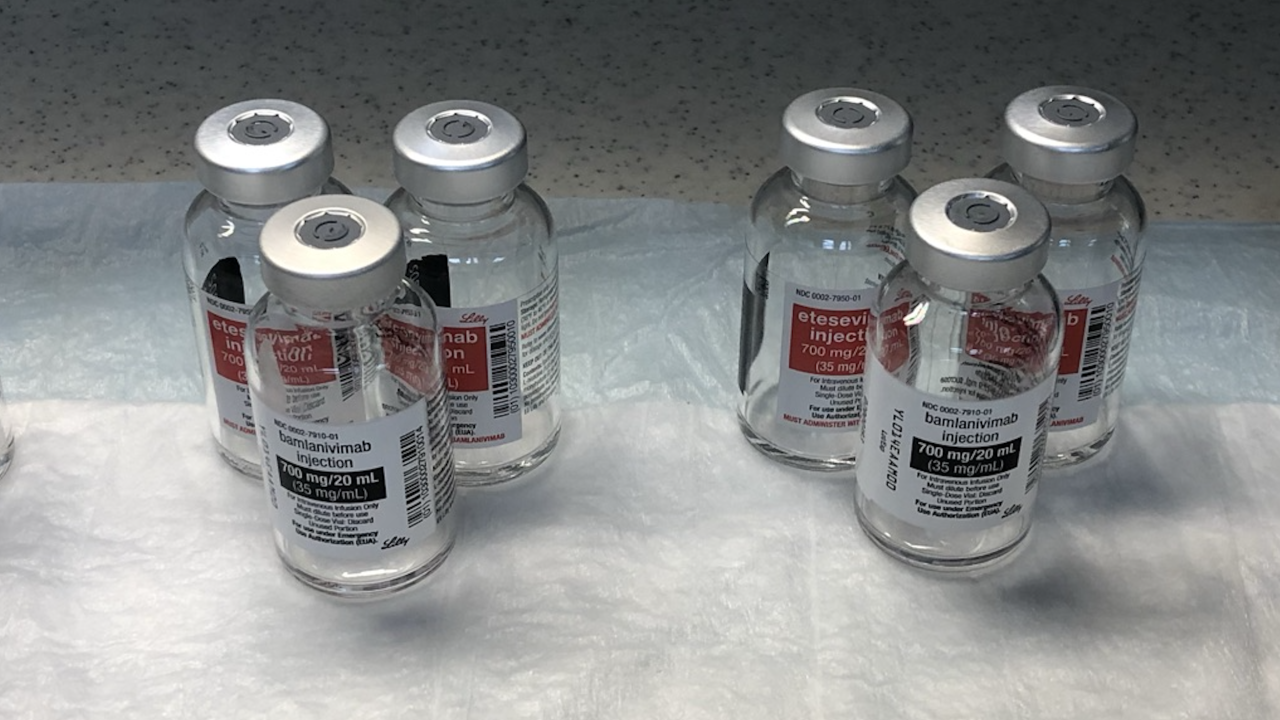MILWAUKEE — Green Bay Packers star quarterback Aaron Rodgers said last week that he received monoclonal antibody treatment in an effort to prevent him from getting COVID-19. Rodgers tested positive last Wednesday. He later revealed his reasoning for not getting vaccinated.
Monoclonal antibody treatment is being administered at some local pharmacies and health systems in the Milwaukee area, but those locations only offer it to people who have already tested positive for COVID-19 and are are at high risk of severe illness based on Food and Drug Administration guidelines.

Rodgers joined The Pat McAfee Show again Tuesday to share that he stands by his decision to forego the approved COVID-19 vaccines and receive alternate treatment instead.
“I shared my opinion,” Rodgers said. “It wasn't one that was come to frivolously. It involved a lot of study and what I felt was in my best interest for my body. But further comments, I'm going to keep between myself and my doctors.”
On Nov. 5, Rodgers said he received monoclonal antibodies in an effort to build immunity and to prevent infection in the first place.
“My desire to immunize myself was what was best for my body and that’s why this is so important to me,” Rodgers said last Friday. “My medical team advised me that the danger that I’d be in of an adverse event was greater than the risk of getting COVID and recovering.”
Monoclonal antibody treatment has received emergency-use authorization from the FDA after it proved to be effective in helping the immune system destroy the virus.
Ajay Sethi is UW-Madison’s public health director and he’s also an infectious disease epidemiologist. Sethi says the expensive treatment that’s administered through an IV is only clinically proven to work after someone contracts the virus.
“It’s not typically taken for a preventative measure because you never really know when you’re going to be exposed to the virus,” Sethi said. "The half-life of these antibodies isn’t that long that if you take it, you’re protected for a long period of time.”
Local health systems and pharmacies say they reserve the treatment for COVID-19 positive individuals who are either elderly, overweight, or have underlying illnesses or immune system deficiencies to prevent the virus from developing into severe disease of worse.
"The problem is that with this virus, and particularly the Delta variant of this virus, it begins replication very quickly, so you need to start that treatment very quickly in order to have some effectiveness, like within days of experiencing symptoms or testing positive for COVID,” Sethi said.
Sethi says the bottom line is monoclonal antibodies should not be used as a replacement for vaccinations.
“The vaccines are highly safe and effective,” he said. “You’ll be protected for a very long time after you complete the series. With monoclonal antibody treatment, it hasn’t been designed or tested in a way to function like a vaccine so it’s not something you would do.”
Rodgers has yet to reveal the medical reason why he was eligible for this treatment or where he received it.




